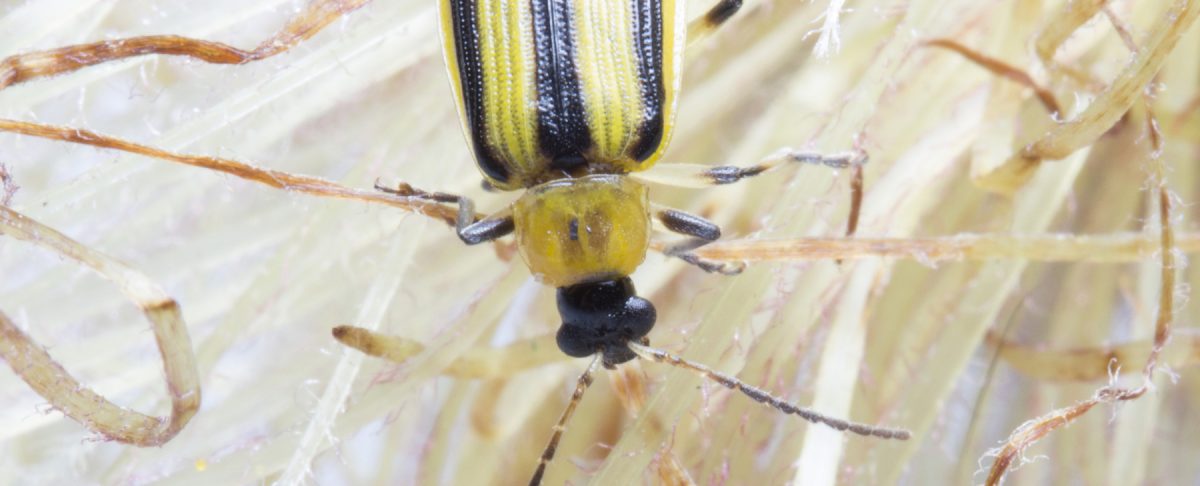
Bryan Jensen, UW-Madison Dept. of Entomology and Integrated Pest Management Program
The EPA has recently confirmed western corn rootworms resistance to the Cry34Ab1/Cry35Ab1 protein, commonly called Herculex, in a field located in SW Wisconsin. Good to know. Although this field met EPA’s “scientific” definition of resistance that is a higher bar, so to speak, than what most of us refer to as “field” resistance. Field resistance, in layperson’s terms, might be easily defined as having unacceptable damage and there are no other explanations for that damage other than increased tolerance. My point is not to discuss terminology but to highlight that we need to be, or must continue to be, good stewards of this technology. We have witnessed field resistance to all four rootworm Bt proteins in Wisconsin. In some areas the field resistance is such that control options may not include a Bt trait. Silver bullets are not on the immediate horizon.
We are in the harvest season and most producers will soon be thinking about purchasing seed for next year. If anything, the timing of this event could not have come at better time. If we are going to maintain the value of these proteins, we will have to diversify our rootworm management practices. The first step is knowing the proteins you are using. The Handy Bt Trait Table for US Corn Production should be on everyone’s reading list. It will clarify which above and below ground proteins are found in each trait family. You are then prepared to help that produce develop a plan to rotate Bt proteins. Rotating proteins should happen every two years. Annual rotation is even better.
The scouting period for rootworm beetles is over. Start making plans to scout next year’s continuous corn. That field information keeps all rootworm management options on the table and is the single best piece information you can have to manage for rootworms economically and effectively.
For more information please go the publications menu on this website and scroll down to pest management for more information on rootworm management. This topic will also be discussed during the Virtual Pest Management Update Meetings on either November 10, 11 or 12.